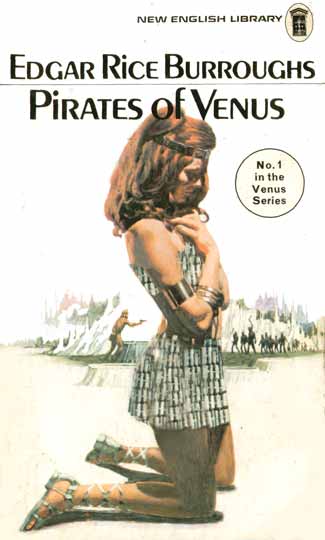
Avetinjski grad
Hakmun je primetio da se magla nije prostirala duž celog kopna, koje je sada primilo neke boje. Okolina je bila tamna i sumorna, delimično svetla u odnosu na brod. Iznad njegove glave svetleo je veliki disk crvenog sunca koje je bacalo mnoge senke...mislio je Hakmun. Onda je polako počeo da primećuje čak mnogo senki - senki koje nisu pripadale okolnim stenama - senke svih veličina i oblika. Tada je shvatio da su to senke ljudi - ali kada je došao na obalu otkrio je da nije bilo bića koja bi bacala senke...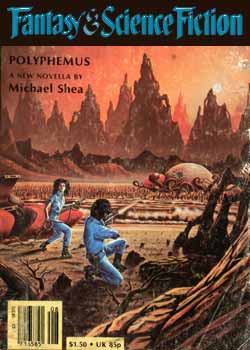

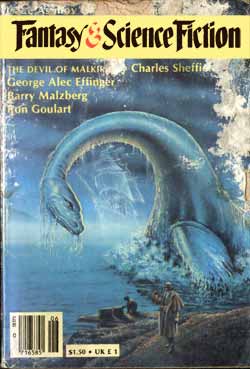

Brzo do prevoda!
Desert - Pustinja
stolen(to steel) - ukraden
Dream - san
follow - pratiti
adventures - avanture
set out - krenuti
hazardous - opasan, riskantan
mission - zadatak, misija
barren - ogoljen, pust, krševit
share - deliti
background - pozadina(priče)
separate - odvojen
independent - nezavisan
glowing - usijani, svetleći
sword - mač
shimmering (shimmer) - svetlucanje
heat - vrelina
pulsation - pulsiranje
bow - pramac
freighter - teretni brod
dreary - turobno, dosadno
sea journey - putovanje morem
quickening - ubrzanje
dreadful place - užasno mesto
abomination - grozota
befall - zadesiti
twentieth year - dvadesetih godina
burly - snažan, krupan
neck - vrat
enormously - ogromno
broad - širok
shoulders - ramena
glorious reign - slavno kraljevstvo
under - pod (vladavinom)
penance - kajanje, ispaštanje
undertake voyage - preduzeti putovanje
burning wastes - goruća pustinja
barren - ogoljen
commit - obavezati se, preuzeti, prihvatiti
shameful deed - sramno delo
deed - akt, odluka, ugovor,čin
intend - nameravati
barely - jedva
hunt - loviti
expiation - ispaštanje
seem - izgledati
flamboyant gesture - divan gest
bound - vezan
wheel of destiny - točak sudbine
settle in - smestiti se
snugly - lagodno
inevitable - neizbežan
bland - blag, učtiv
entourage - pratnja, okruženje
to purge (one's) soul- očistiti dušu
consequence - posledica
hunting companion - ortak u lovu
flask - boca (pljoska)
rough - grub, surov
tavern - kafana, krčma
announce - objaviti
intention - namera
blunt - prost, glup
snort - prasnuti u smeh
laugh - smeh
judge - proceniti, prosuditi
harsh - grub, sirov, uvredljiv, nepristojan
sin - greh
foul - rđav, prljav
merits - zaslužuje
jount - izlet, šetnja
sting (stang,stung) - ujesti, ubosti, ubod
patronize - zaštitnički(odnositi se)
Wrongness - nepravednost, pogrešnost
stain - ljaga
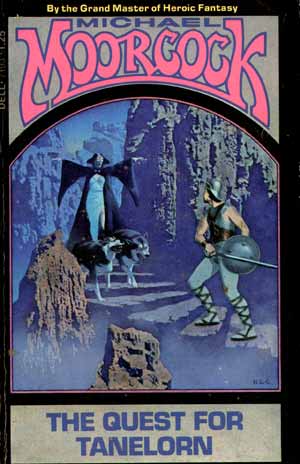
THE HAUNTED CITY
Hawkmoon noticed that the mist did not extend as far as the land, which had now taken on some color. Normally, he would have thought how dull the surroundings were, but in contrast to the ship they were bright. And above his head was a great disc, bloody and still, which was the sun. It cast a great many shadows, thought Hawkmoon. It was only slowly that he began to notice just how many shadows were cast—shadows which could not possibly belong to the rocks alone-shadows of all sizes, of all shapes. Then, he saw, they were the shadows of men— but only when he came ashore did he discover that there were no beings to cast them...Lampa sa Atlantide
i druge priče
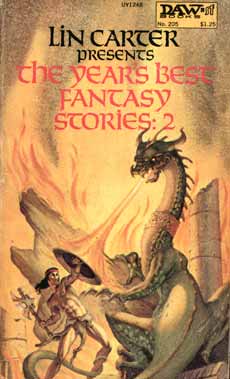
The Lamp from Atlantis
Atlantis - According to legend, an island in the Atlantic Ocean that Plato said was swallowed by an earthquake
Prema legendi Atlantida je bila ostrvo u Atlanskom okeanu za koje je Platon (grčki filozof) tvrdio da je potonulo u zemljotresu.
Časopis "Fantastična i Naučna Fikcija"

Kradljivci Snova
The Desert of Stolen Dreams
BY ROBERT SILVERBERGThis new novella follows the adventures of Dekkeret, a young man in the Coronal's entourage, as he sets out on a hazardous massion to the barren continent of Suvrael. The story shares with Silverberg's novel LORD VALENTINE'S CASTLE (Nov. 79-Jan. 80) the same background, the huge and wonderful planet of Majipoor, but this is a completely separate and independent tale.
Suvrael lay like a glowing sword across the southern horizon — an iron band of dull red light, sending shimmering heat-pulsations into the air. Dekkeret, standing at the bow of the freighter on which he had made the long dreary sea journey, felt a quickening of the pulse. Suvrael at last! That dreadful place, that abomination of a continent, that useless and miserable land, now just a few days away, and who knew what horrors would befall him there? But he was prepared. Whatever happens, Dekkeret believed, happens for the best, in Suvrael as on Castle Mount. He was in his twentieth year, a big burly man with a short neck and enormously broad shoulders.
This was the second summer of Lord Prestimion's glorious reign under the great Pontifex Confalume. It was as an act of penance that Dekkeret had undertaken the voyage to the burning wastes of barren Suvrael. He had committed a shameful deed — certainly not intending it, at first barely realizing the shame of it — while hunting in the Khyntor Marches of the far northland, and some sort of expiation seemed necessary to him. That was in a way a romantic and flamboyant gesture, he knew, but he could forgive himself that. If he did not make romantic and flamboyant gestures at twenty, then when? Surely not ten or fifteen years from now, when he was bound to the wheel of his destinies and had settled snugly in for the inevitable bland easy career in Lord Prestimion's entourage. This was the moment, if ever. So, then, to Suvrael to purge his soul, no matter the consequences.
His friend and mentor and hunting companion in Khyntor, Akbalik, had not been able to understand. But of course Akbalik was no romantic, and a long way beyond twenty, besides. One night in early spring, over a few flasks of hot golden wine in a rough mountain tavern, Dekkeret had announced his intention and Akbalik's response had been a blunt snorting laugh.
"Suvrael?" he had cried. "
You judge yourself too harshly. There's no sin so foul that it merits a jaunt in Suvrael."
And Dekkeret, stung, feeling patronized, had slowly shaken his head. "Wrongness lies on me like a stain. I'll burn it from my soul under the hotland sun."
"Make the pilgrimage to the Isle instead, if you need to do something. Let the blessed Lady heal your spirit." "No. Suvrael."
"Why ?"
"To suffer," said Dekkeret. 'To take myself far from the delights of Castle Mount, to the least, pleasant place on Majipoor, to a dismal desert of fiery winds and loathsome dangers. To mortify the flesh, Akbalik, and show my contrition. To lay upon myself the discipline of discomfort and even pain — pain, do you know what that is? — until I can forgive myself. All right?"
Akbalik, grinning, dug his fingers into the thick robe of heavy black Khyntor furs that Dekkeret wore. "All right. But if you must mortify, mortify thoroughly. I assume you'll not take this from your body all the while you're under the Suvraelu sun."
Dekkeret chuckled. "There are limits," he said, "to my need for discomfort." He reached for the wine. Akbalik was nearly twice Dekkeret's age, and doubtless found his earnestness funny. So did Dekkeret, to a degree; but that did not swerve him.
"May I try once more to dissuade you?"
"Pointless."
"Consider the waste," said Akbalik anyway. "You have a career to look after. Your name is frequently heard at the Castle now. Lord Prestimion has said high things of you. A promising young man, due to climb far, great strength of character, all that kind of noise. Prestimion's young; he'll rule a long while; those who are young in his early days will rise as he rises. And here you are, deep in the wilds of Khyntor playing when you should be at court, and already planning another and more reckless trip. Forget this Suvrael nonsense, Dekkeret, and return to the Mount with me. Do the Coronal's bidding, impress the great ones with your worth, and build for the future. These are wonderful times on Majipoor, and it will be splendid to be among the wielders of power as things unfold. Eh? Eh? Why throw yourself away in Suvrael ? No one knows of this — ah — sin of yours, this one little lapse from grace—"
"I know."
"Then promise never to do it again, and absolve yourself."
"It's not so simple," Dekkeret said.
"To squander a year or two of your life, or perhaps lose your life entirely, on a meaningless, useless journey to—"
"Not meaningless. Not useless."
"Except on a purely personal level it is."
"Not so, Akbalik. I've been in touch with the people of the Pontificate and I've wangled an official appointment. I'm a mission of inquiry. Doesn't that sound grand? Suvrael isn't exporting its quota of meat and livestock and the Pontifex wants to know why. You see? I continue to further my career even while going off on what seems to you a wholly private adventure."
"So you've already made arrangements."
"I leave on Fourday next." Dekkeret reached his hand toward his friend. "It'll be at least two years. We'll meet again on the Mount. What do you say, Akbalik, the games at High Morpin, two years from Winterday?" Akbalik's calm gray eyes fastened intently on Dekkeret's.
"I will be there," he said slowly. "I pray that you'll be too."
That conversation lay only some months in the past; but to Dekkeret now, feeling the throbbing heat of the southern continent reaching toward him over the pale green water of the Inner Sea, it seemed incredibly long ago, and the voyage infinitely long. The first part of the journey had been pleasing enough — down out of the mountains to the grand metropolis of Nimoya, and then by riverboat down the Zimr to the port of Piliplok on the eastern coast.
There he had boarded a freighter, the cheapest transport he could find, bound for the Suvraelu city of Tolaghai, and then it had been south and south and south all summer long, in a ghastly little cabin just downwind from a hold stuffed with bales of dried baby sea-dragons, and as the ship crossed into the tropics the days presented a heat unlike anything he had ever known, and the nights were little better; and the crew, mostly a bunch of shaggy Skandars, laughed at his discomfort and told him that he had better enjoy the cool weather while he could, for real heat was waiting for him in Suvrael.
Interesantna su pisma čitalaca ovom magazinu:
...While I'm at it, I would like to note a few past errors. In your June 1980 issue you published a story by Reynolds called "Hell's Fire."
In this story they needed to stand inside of a large pentagram to "raise hell." For this they used the Pentagon in Washington, D.C. The Pentagon is not a pentagram it is a pentagon. A pentagram, also called a pentacle, is a five sided star like is on the American flag.
Then you had a cover for "The Call for the Dead" by Glen Cook on your July 1980 issue. The story said "A pentagram marked the floor surrounding it.", "it" referring to the chair in which the figure sat. On the cover, however, there is a hexagram or a Star of David or a Seal of Solomon in front of the chair.
In most ways Fantasy & Sciencia Fiction is a terrific magazine. Why must you mess it up by being careless as to what you put on your cover? To err is human but editors are not supposed to be human...
